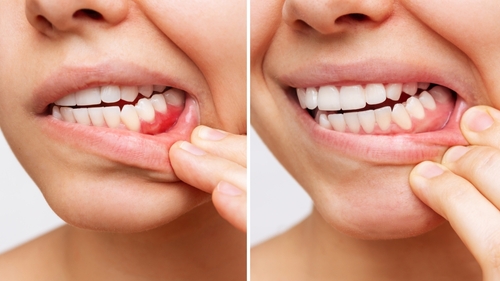
Can Periodontal Disease Be Reversed?
Periodontal disease, also known as gum disease, is a serious problem for many people around the world. This chronic inflammatory condition can lead to serious consequences such as tooth loss and potential systemic health problems if left untreated. What can be done to treat periodontal disease? Can it be reversed?
What Is Periodontal Disease?
When plaque builds up on the teeth, it can create a breeding ground for harmful bacteria. This bacteria releases toxins, triggering inflammation in the gums. Without intervention, this inflammation can cause the breakdown of gum tissue and supporting bone, leading to pockets forming between the teeth and gums—pockets that further promote bacterial growth and infection.
The Stages of Periodontal Disease
Periodontal disease advances through stages, from mild to severe. The initial stage, known as gingivitis, is characterized by red, swollen gums that might bleed during brushing or flossing. It’s important to be able to recognize the symptoms of gingivitis because, with timely action, it can often be reversed. Professional dental cleanings and improved oral hygiene at home are usually the best way to reverse this mild form of periodontal disease.
If, however, gingivitis is left untreated, it can progress to periodontitis—a more severe form of gum disease. This stage involves both inflammation and irreversible damage to the teeth’s supporting structures. Here, the prospect of full reversal becomes more complex, yet there remains potential for effective management.
Managing Periodontal Disease
While a complete reversal of advanced periodontal disease might not be guaranteed, its progression can be effectively managed using some tried-and-true strategies:
Professional Dental Care
Regular dental visits are vital. A good dentist can perform deep cleaning procedures like scaling and root planing to remove plaque and tartar below the gum line, reducing inflammation and promoting healing.
Good Oral Hygiene
A consistent oral care routine that includes brushing, flossing, and using antimicrobial mouthwash plays a significant role in managing gum disease. Ask your dentist if you’re unsure about proper techniques for your home dental care.
Lifestyle Changes
Adopting a healthier lifestyle can go a long way toward preventing or treating gum disease. Quitting smoking, maintaining a balanced diet, managing stress, and staying hydrated all positively impact oral health.
Medications
Dental professionals might prescribe medications or antimicrobial rinses to control bacterial growth and inflammation.
Surgical Interventions
In severe cases of periodontal disease, surgical options like gum grafts or bone grafting might restore damaged tissue and promote bone regeneration.
Early Intervention Is Key
When it comes to treating periodontal disease, prevention, and early intervention are paramount. Detecting and treating gum disease early significantly enhances the chances of successful management, as well as the possibility of reversing the disease. Regular dental check-ups enable your dentist to identify signs of gum disease and provide tailored guidance for effective control.
Contact Smile League Dental
Having a good dentist in your corner is critical to winning the battle against periodontal disease. At Smile League Dental, we are proud to offer our expertise and support to families throughout Joliet and the surrounding areas. Call us today to chat or book an appointment. You can reach us at 815-782-6243.

Recent Comments